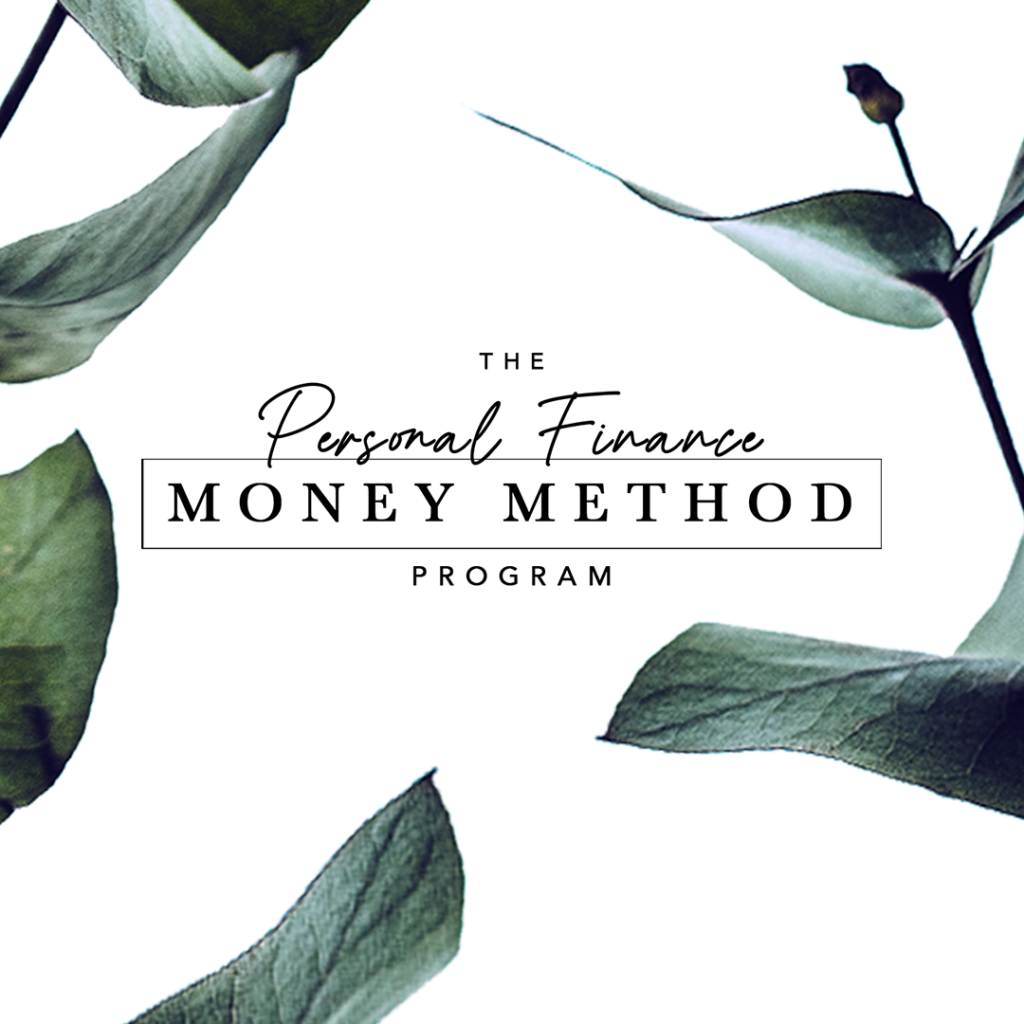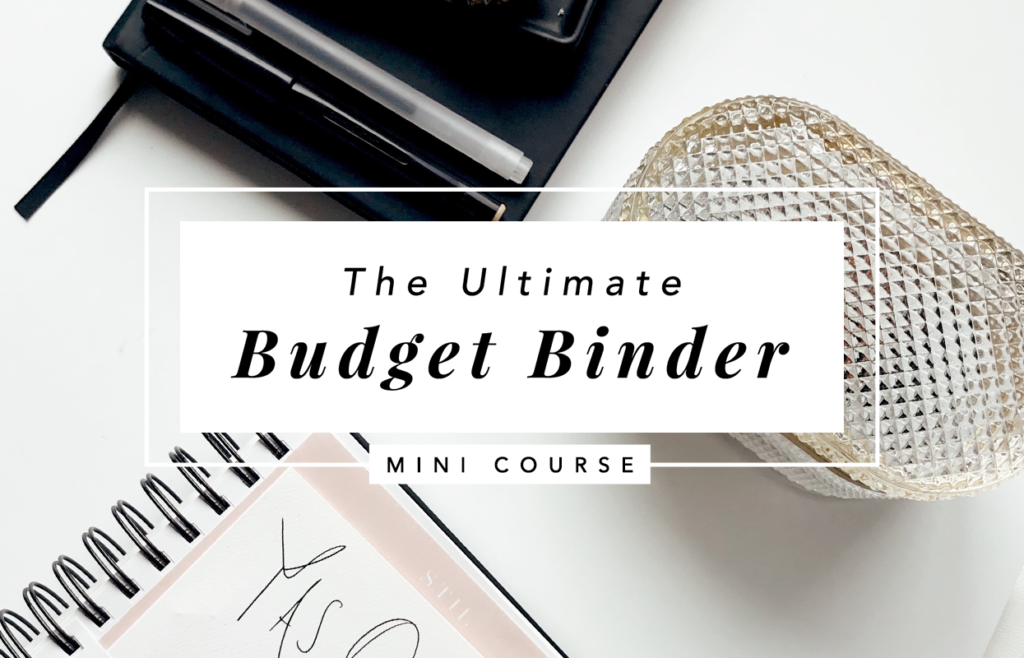Basic financial literacy skills are essential skills for every person, but sadly, a large percentage of people fall short of having those skills.
For entrepreneurs and business owners, having both personal financial literacy and business financial literacy skills is an investment worth making. There are many reasons why basic financial literacy is important.

What is financial literacy?
The President’s Advisory Council on Financial Literacy defines personal financial literacy as “the ability to use knowledge and skills to manage financial resources effectively for a lifetime of financial well-being.” (2008 Annual Report to the President)
Personal basic financial literacy is more than just being able to balance a chequebook, compare prices or get a job. It also includes skills like long-term vision and planning for the future, and the discipline to use those skills every day.
Want to learn more about how to create a financial plan that will create a fulsome approach to your personal finances? Join The Personal Finance Money Method Program to learn about the steps you need to take to create a personal financial plan.

Why is financial literacy important?
There are many reasons why basic financial literacy is important for people. Money is a currency that we use to trade. We work and get paid money so that we can purchase wants and needs. And managing that money well to ensure that we spend more than what we bring in is considered living within our means.
It is essential to living within your means to avoid debt. Debt is when you owe money to a third party and you are paying interest on that debt.
When you have basic financial literacy skills, you are aware of how to manage your money well to avoid debt and build personal wealth.
Why should I become more financially literate?
Money is a crucial part of our lives. We seem to need money for everything. Having money helps us meet our basic needs of food and shelter. And if we have dreams and aspirations, chances are we need more money to reach those goals.
For most people, money is a sensitive topic. People are rarely discussing their personal money situations. We need to change that.
According to the Financial Consumer Agency of Canada, financial literacy is “having the knowledge, skills and confidence to make responsible financial decisions.” It further explains that “A financially literate society helps build a strong economy, which in turn makes all our lives better.”
Let’s take for example, Barbara earns $8,000 and spends $8,500 per month while Kim earns $4,500 and spends $3,500. Who is in a better financial position at the end of the month? And if they both keep this trend going for a year, Barbara, as the higher earner, will have managed to get herself in a large amount of debt, where Kim, as the lower earner, will have a nice amount of savings.
In order to have basic financial literacy skills, you have to know how to manage your money well, both for today and plan for the future. And you need to understand and apply financial management skills. Read Why is financial planning important and why should I do it? for more information on creating a personal financial plan.

Tips on how to be financially literate:
Create and stick to a budget
There is no point in having a budget if you do not monitor your progress against it. This is the first step to basic financial literacy skills. I recommend getting into a routine of making weekly appointments with yourself to sit down and spend the time monitoring your budget.
Know the difference between wants and needs
Needs are a necessity for survival. They include food, shelter, utilities, and other expenses you may need to carry on your day-to-day living. Wants are things that you can live without, like luxury cars, expensive clothing, fancy restaurants, and so much more. People go broke by spending too much money on wants.
Do not carry debt
If you are carrying debt, I suggest you get familiar with how much your debt is costing you. Debt does not come for free, you need to pay interest charges. And when you understand how much that debt is costing you, it may be the motivator you need to pay it off.
Basic financial literacy skills show you how debt affects your wealth. Nobody ever got rich by carrying a lot of debt.

Save for the future
The more money you have saved, the more comfortable you will feel. The stress will be gone, and your future will feel secure.
Create a plan for what you want to achieve in your life
A goal without a plan is just a wish. Do you have goals in life? Plan for them and make them happen.
Be smart and informed
In order to make smart and informed financial decisions, get educated. Invest in your financial literacy skills so that you make smarter choices to build your wealth.
The bottom line here is if you are struggling with your finances, it is time to make a change. You need to make planning your financial future a priority, in order to ensure you have financial literacy skills. Do you want to live in a place of wealth or a place of debt?

Benefits of financial literacy
Consumer debt levels were at an all-time high prior to the pandemic, but the pandemic has also shown that consumer debt levels have dropped. TD.com states that many households will emerge from the pandemic in better financial health.
We have lived the past decade or more living in a time where it was so cheap to borrow that people took advantage of it. They spent more than they could afford to buy houses, new luxury cars, and tons of luxuries, believing that they would pay it off eventually.
When did the BMW replace the old station wagon mom and dad drove when we were young?
Then it snowballed, and before they knew it their debt loads were so high, they started struggling at meeting their payments. Basic financial literacy skills show you how to create a budget and manage your money so that you can build wealth.
Those who will fare well have a financial plan in place and were ready for an economic downturn. Because history dictates, what goes up, comes down. The economy is consistent at upward and downward movements, and right now we are in for a massive dip.
If you’re feeling stressed out about your finances these days, you’re not alone. Financial mismanagement does not discriminate – it is a common occurrence with those who are making good incomes.

You can put the past financial mistakes behind you and start reading about financial literacy and make a plan to learn how to create a financial plan that will get you out of debt and moving towards financial wealth.
Wanting basic financial literacy skills to set yourself up for financial success is a good thing. It is the key to your financial future and will bring you financial health. With financial health, there is reduced stress and you feel happier and free of weight on your shoulders.
The bottom line is that we’ve all made mistakes, but we can’t stay in those mistakes. We need to move forward and make changes. It’s time to get out of the financial mess and start working towards financial success.

How being debt-free is important to the benefits of financial literacy
Have we become so comfortable with it that we just accept it now as a way of life?
I hope not. Being debt-free offers a sense of freedom. You owe nothing to any lenders, and ideally, you still make an income, whether passive or active, and you can now choose where you’d like this money to go.
I’ve often said to get your money working for you. Do not spend your life working for money. Basic financial literacy skills show you how to make a passive income.
If this global crisis has not hit home to you about how important it is to live within your means, it should. Just imagine how much easier life would be right now if you didn’t have debt payments and your financial house was in order. A lot less worrisome, right?
So how does a life filled with debt work for you right now? Chances are your income is tied up in mortgage payments, car payments, you’re wasting money on interest payments, and there is little to no money left over to enjoy life.
It’s too late to go back and fix it, but it’s time to work with what you have right now. And if you are carrying debt, it is time to make that debt repayment a priority right now.
Basic financial literacy skills are key in preventing a life of debt. Debt sucks. It puts you at a financial disadvantage because a big chunk of your income is going towards paying interest expenses.
When you don’t have debt you can invest money that you save and get that money working for you. Basic financial literacy and financial education will show you how to do this.
You don’t need a big house, fancy cars, expensive luxuries or unnecessary items to be happy. That’s just marketing messages that you have chosen to believe. In fact, these things never brought happiness. It was always just a mask to gloss over what we were feeling, which is usually insecurity of some sort. Insecure that we weren’t enough if we didn’t keep up with the Joneses or buy the bright shiny toy of the day.
A debt-free life in the face of emergencies is knowing that you have a plan. You’ve got this. You were prepared, you planned for this, and your emergency fund will get you through. Your expenses are minimal because you live below your means. And you can not only handle a financial crisis, but you can get yourself through it easily. The emotion, the fear, the insecurity, and the stress are no longer controlling you, especially in a time of panic. You feel calm about yourself because you were prepared.
I’m not suggesting that living debt-free takes away all your financial worries, but it decreases your financial worries significantly.

Is it too late to get out of debt and start understanding the purpose of financial literacy?
You’re in debt, and you’ve been riding this cycle of debt for years. You wonder if it’s ever going to stop. And you’re mad at yourself that you’ve let it go on for this long. But don’t waste the energy in beating yourself up over it. You need financial literacy skills.
It happens to most people. The Federal Reserve Bank of New York reported that Americans are $14.3 trillion in personal debt.
Being in debt, regardless of your age or your stage in life, is frustrating and stressful. And what is worse is when you don’t know how to manage your finances. It’s not your fault. You were not taught financial literacy skills or personal money management in school, and your parents likely did not speak to you about it.
Money can cause a flurry of emotions in people, and it’s hard to understand. But when you get control over your financial situation by using basic financial literacy skills, you will be able to break the cycle and plan for your financial future.
Recent events and a global economic crisis have put money in the spotlight lately, and because of that, you may be more concerned about your finances.

Here are my top tips for financial literacy management:
Create a personal budget.
One of the first tips you learn in a basic financial literacy course is to create a budget. A budget is the best way to track your money. It lists all the money you have coming in for the month and manages all the money that goes out in the month. A budget keeps you organized and on top of your bill payments so pay on time and stop incurring late fees.
Live within your means.
Since the budget clearly shows how much money comes in for the month and how much money is going out, the budget will alert you when you are spending more than you are bringing in. Living beyond your means is the quickest way to accumulate large amounts of debt. Good financial skills involve not spending more money than what you are bringing in.
Create a debt repayment plan.
When you are in debt it is important to repay it as soon as possible. You can start by paying off your most expensive debt first (the debt with the highest interest rate) and work your way down from that. When you are in debt you are paying carrying costs, also known as interest expense, and those expenses can be very high.
Keep your personal finances separate from your business finances.
You need to keep separate records and not mix up your business finances with your personal finances. They are different entities and require separate record tracking. Keeping them together will confuse things and you will likely miss out on some tax-saving opportunities if your records are not organized.

Work towards a plan of building wealth
Building wealth is so important for a financially secure future. Having a portfolio of diversified investments will benefit you and you can draw from them in retirement. There are so many benefits to being financially secure, but the top benefit would be reduced stress. Stress is bad for your health and when you are constantly financially stressed it takes a toll on your mental and physical health.
The bottom line is that it’s never too late to get your personal finances in order. When you are aware of how much debt costs you, you will understand that it is in your best interest to no longer carry that debt.
Get your money working for you and start building up your wealth.

Learn the benefits of financial literacy and the importance of it
It is important for you to conduct a review of your personal finances. Regardless of where you are on your financial path to financial freedom, whether that be in debt, building your emergency fund, saving for retirement, or whatever the case may be. It is always important to check in on your personal finances and cash flow, measure your progress and tweak your plan.
The key to a successful plan is living on a budget in order to achieve financial peace.
Times change, life throws us curveballs, we experience bad situations on a cyclical basis. The best plan of action is to course correct. Basic financial literacy skills help you build your resilience so you have a plan in place to get through the more difficult financial times, such as a job loss or a serious illness.
Life is full of surprises and rarely goes according to plan. We plan for the best, expect the worst, and do our best to be resilient.
For many of us, our personal finances have been thrown into the spotlight. You may be wondering what you can do to protect your hard-earned and valuable money. But the deeper quest you are on is to protect your financial security.

The importance of financial literacy is outlined here:
Living debt-free is huge and top of the list
When you carry debt in any capacity, whether it be credit card debt, mortgage, car payments – you are throwing money away if you can’t pay cash for it. Because the interest accumulates. Have you ever looked at how much you pay in interest on your mortgage? What would you rather put that money towards?
You need a plan for your money
A goal without a plan is just a dream. If you do not have a plan for your money, your money will just be out there, floating around, with no real direction. You’ll find ways to waste it, spend it mindlessly, and wonder where all your money goes.
Get your money working for you
I am a firm believer in having your money working for you. Financial literacy teaches us how to plan. The opposite of debt is investing. There are amazing ways you can get your money working for you. You can invest your money in stocks, rental property, business ventures, basically anything that will earn you money in repayments.
Learn the power of compound interest
When you truly understand the power of compound interest, you will be hooked on it and having compound interest work for you. Compound interest can be a challenging concept for some people to grasp, but it is worth taking the time to understand that concept. Compound interest is truly fascinating and the fastest way of getting your money to grow.
Compound interest takes the initial investment for the first period plus interest earned in that period, then that full amount earns interest on top of the initial investment plus interest, and so on. So the idea is that you are earning interest on your interest, which helps your money grow faster.

Once basic financial literacy is achieved, you still need to maintain the importance
It’s common to think that when someone achieves a certain level of wealth in their life, such as millionaire status, they will stop budgeting. But I recently learned that that is indeed incorrect.
I met with millionaire entrepreneur and business owner Emily Vavra, and we had a candid conversation about wealth and managing money.
A single mom of three kids raised Emily, so Emily learned that money was scarce at a young age. She saw how hard her mom worked to provide a good life for her three kids and saw how her mom budgeted her money tightly to offer her kids the extras in life.
Having achieved millionaire status by 26, Emily had some soul-searching to do around money and figure out who she was. Emily quickly realized that money meant nothing to her if she wasn’t happy. There were only so many bags she could buy, and that wasn’t what truly made her happy.
Being out in California and surrounded by material things and the pressure to keep up with the Joneses, Emily had to do some work on her money mindset issues. Coming to terms with the fact that it was ok to make money, and a lot of it, helped her through her identity crisis.
Having money allows Emily to do good things, such as offering funds for schools and helping employees out who have challenging circumstances. Emily sees a lot of good that she can do with money and finds joy in helping others.
And to continue doing good for her community, Emily also realizes that she needs to maintain her wealth. Emily knows her numbers in her business and personal finances. She knows how to save her money and keep her money working for her to maintain and grow her wealth.

Emily knows that leading by example gives others an opportunity to do the same and shares these excellent money management strategies:
- Maintain a budget
Both in business and for your personal finances, it is essential to track your money regardless of your income. It is in how you manage your money that will build your wealth. If you are spending what you are bringing in and not investing your money in assets that will grow your wealth, you’ll never build your wealth.
- Don’t be an emotional spender
Keeping up with others to make sure you have what they have or more is filling an emotional need related to money. It didn’t take long for Emily to see that she could shop all she wanted, but those were not the things that fulfilled her life when she looked at her closet. She had to look deeper within herself to know what made her happy, and it wasn’t shopping.
- Be intentional with your finance
- Knowing that you can afford something versus deciding not to spend your money on something is the key. For example, Emily can afford a smoothie at the gym after a workout. However, she insists on bringing her water bottle and not spend the extra $14 on an after-workout treat. She knows this is saving her money, which she is very intentional about.
- Decrease your spending
Spending money and not watching where it goes is a fast way to going broke. If you are spending more money than you are bringing in, you cannot sustain that lifestyle for long.
- Don’t apologize for making a lot of money
Women can often feel uncomfortable about having a lot of money, but remember, you can do a lot of good with money. It’s great to make money, and it’s great to put that money you make to do good in the world.
- Use your vision board
Emily encourages everyone to have a vision board, and she displays her vision board proudly in her office. The vision board keeps her grounded and focussed on the goals she wants to achieve for the year. Emily is continually striving and moving forward towards her goals.

The bottom line is achieving wealth is fantastic, but it’s also just as great to manage your money to ensure that you will have it for years to come. With increased wealth comes an inflationary lifestyle. Your expenses increase regardless of your income level, so you always need to monitor your spending.
If you are looking for an excellent course filled with tons of basic financial literacy information, check out the Personal Finance Money Method Program. This course outlines the seven steps you need to take to create your financial plan.

[…] your personal net worth is part of building your financial literacy skills. You need to understand what net worth is and you need to know what yours […]